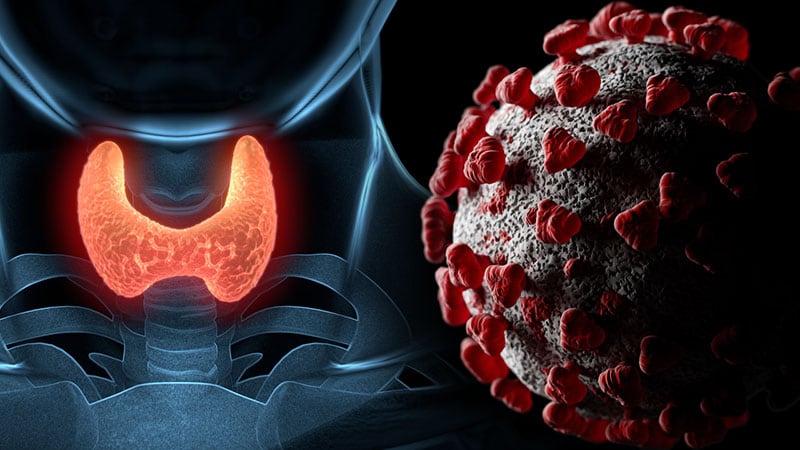Key Takeaways
- Hypothyroidism was not associated with a worse prognosis among patients with COVID-19.
- Among patients with COVID-19, those with underlying hypothyroidism were significantly less likely to require mechanical ventilation, and hospital mortality tended to be less compared with patients with normal thyroid function.
- Patients with COVID-19 and hypothyroidism had similar comorbidities, clinical presentations, and laboratory values compared with patients without hypothyroidism.
Why This Matters
- This study has the largest sample of patients with COVID-19 and hypothyroidism to date.
- The findings suggest that underlying hypothyroidism does not lead to worse outcomes in patients with COVID-19.
Study Design
- Data were collected by the Brazilian COVID-19 Registry, which includes 37 hospitals, from 7762 patients with a confirmed diagnosis of COVID-19 during March 1 to September 30, 2020.
- Of these patients, 526 had a clinical history of previously diagnosed hypothyroidism and were receiving levothyroxine replacement therapy at 31 of the participating hospitals in 15 Brazilian cities.
- The researchers matched these case-patients with 526 control patients who had had COVID-19 and did not have a history of hypothyroidism.
Key Results
- Patients in the two study arms were closely matched with respect to many factors, including demographics, vital signs, comorbidities, laboratory values, and hospitalization course.
- Mechanical ventilation was needed by 25% of patients with hypothyroidism and by 33% of those without hypothyroidism (P = .006).
- In-hospital mortality occurred in 22% of those with hypothyroidism and in 27% of those without hypothyroidism (P = .062).
- The average length of hospitalization was 8 days among those with hypothyroidism and 9 days among those without hypothyroidism (P = .029).
Limitations
- The study was limited by the size of the enrolled population and the number of events they experienced.
- The study was retrospective and was limited to data extracted from chart reviews.
- Thyroid status depended on patient-supplied information at the time of hospital admission.
- The patients’ levels of thyroid-stimulating hormone and thyroid hormone were not evaluated during hospitalization.
Disclosures
- The study received funding from several Brazilian governmental agencies.
- The authors have disclosed no relevant financial relationships.
SOURCE: This is a summary of a preprint of a research article written by corresponding author Milena Soriano Marcolino, MD, Ph.D., from the University Hospital of the Federal University of Minas Gerais, in Belo Horizonte, Brazil, and co-authors published on MedRxiv. This study has not yet been peer-reviewed. The full text of the study can be found on MedRxiv.org .


Recent Comments